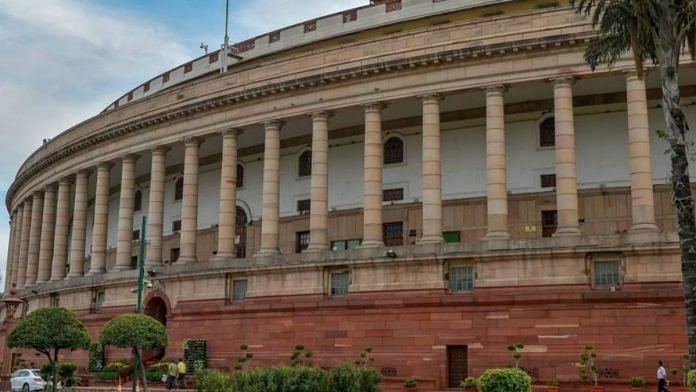When scores of parents flooded his office with complaints over delayed scholarship payments to tribal boys and girls, a young parliamentarian from Odisha was forced to take matters into his own hands. When the government had turned a deaf ear to his repeated requests for prompt release of scholarship funds, the MP was forced to pay tuition out of his own pocket—a matter he eventually took up in Parliament, and one that MPs struggle with regularly.
Optimally, the role of national legislators is to create a framework for governance. But thanks to the broken state of our public system, parliamentarians often have to step in and take on the role of the executive in order to support their constituents. Moreover, they seldom have the right tools to execute these gargantuan tasks, which results in ineffective solutions. Arranging for hospital beds, finding prospective job opportunities and providing financial help in marriages are a few of the many requests that inundate them daily. While our governance machinery recognises this and has made conscious attempts to support MPs, they fall short of creating a robust support system.
MPLAD fund a burden to parliamentarians
On 23 December 1993, the government introduced the Local Area Development Fund (LAD). The MPLAD provides an opportunity to MPs to recommend prospective programmes. In 2014, Prime Minister Narendra Modi announced the Model Village Programme, where every MP is expected to adopt a village in their constituency and improve it to an extent where it becomes an exemplar, or ‘model’ village. And in 2016, the Ministry of Rural Development set up District Development Coordination and Monitoring Committees (DISHA) for MPs to oversee the functioning of central schemes in their respective constituencies.
While these additional responsibilities have rooted MPs to their constituencies and solidified their presence locally, they have fallen short in providing a comprehensive set of tools that can support them fully. For an MP to support their constituents, they need financial resources that allow them to respond to demands, talented professionals to manage larger programs and a strong synergy with the local administration to ensure final delivery.
The MPLAD provides Rs 5 crore annually to cater to an average constituency of 15 lakh people. MPs can only nominate works but they are only taken up after the final approval from district magistrates.
Many parliamentarians see MPLAD as a burden—constituents believe that MPs have the resources but they are actually too little and too tight to make any significant dent. The thought of providing funds is meaningful, but the MP needs significant financial resources to help constituents. Unfortunately, the contours of the current LAD program do not support the kind of financial pressures that MPs feel. MPs need to pay for weddings, college tuition or even to help people facing personal financial difficulties. The MPLAD does not answer any of these ‘practical’ needs. The MPLAD programme needs to be redesigned to fit the current demands of the MP and give them more financial support and autonomy in the process.
Even if the MPs have the financial resources to execute programs, they often lack the talent to support them. Schemes like the Model Village Programme need the support of young professionals who can ensure deliverables. However, our current system only allows for MPs to onboard one professional with a monthly stipend of around Rs 50,000. Western democracies like the United States have governments spend upward of $500,000 annually to develop and deploy office staff for their national legislators. The result is that despite conceptualising powerful programmes, we are unable to do justice to them. It is critical to create systems for onboarding talent through government funding.
Also read: Indian civil servants are expected to be karma yogis. But look at ground reality first
Weak link with the executive
Finally, a major issue in our governance structure is that while MPs are expected to take on execution roles, their link to the executive is weak at best. The parliamentarian and District Magistrate (DM) are not linked in our governance system. In most cases, the legislator has a cordial relationship with the DM. Understandably, most MPs and DMs prefer to keep roles and responsibilities separate. Moreover, it is not possible for one to ask the other to be accountable since a reporting system doesn’t exist. Therefore, while programmes like the DISHA committee are promising, the concept of MPs maintaining oversight on central schemes does not fulfill its intended goal. In several cases, the MPs and DMs walk away from these meetings feeling discontented. We need to rethink ways to foster a more collaborative link between MPs and DMs.
One of my favorite anecdotes is about an MP from West Bengal who once received a phone call from a frustrated constituent in the middle of the night as he grieved about his wife running away. “You better find her,” the constituent told the MP on the phone. “Well, she is not with me so I can’t do much now,” he retorted wittily and hung up. This anecdote is symbolic of the ridiculous things expected of MPs but more importantly, points towards the demanding nature of the job. If we expect MPs to fulfill their duties, then we need to be ready to provide them with the requisite support.
Rwitwika Bhattacharya is CEO of Swaniti Initiative and author of ‘What Makes a Politician’ (Harper Collins). Views are personal.
(Edited by Zoya Bhatti)



